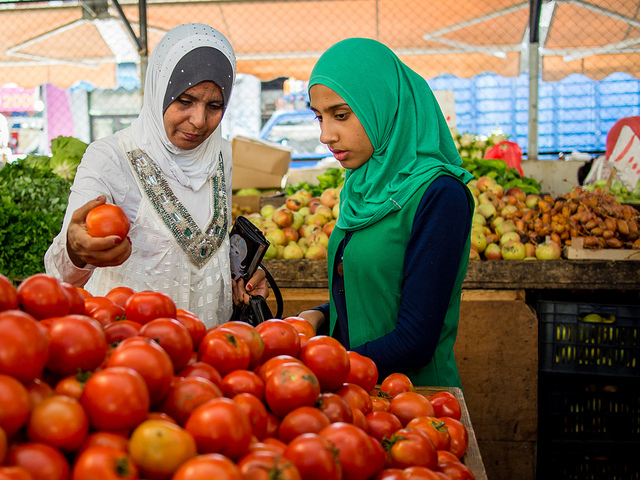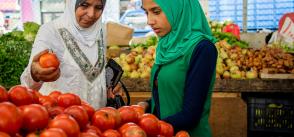
Innovative solutions to food and nutrition issues in densely populated urban areas
In Lebanon, the impact of the Syrian crisis on food security is particularly concerning.
According to the Lebanon Crisis Response Plan (LCRP), an estimated 1,520,000 persons currently need food assistance in Lebanon. As the crisis extends, current levels of humanitarian aid could become unsustainable. Reduced funding and limited resources are already causing a reduction in food aid delivery in Lebanon. In the Mount Lebanon governorate, people have difficulties in accessing quality, nutritious and diverse food.. ACTED is supporting deprived Lebanese and Syrian refugees in the region through two innovative food security projects that promote community gardening within the Ghoberi community in Baabda district, and in a centre for deprived children and youth in Metn district.
Vertical gardening: A solution to tackle food security in urban areas
When agricultural space is missing, an efficient solution to improve access of urban populations to diverse fresh food and their self-reliance is vertical gardening. Vertical gardening consists of durable low-cost designs that take into account space and resource constraints in the urban context of the targeted neighbourhoods. Garden designs include innovative adaptations to roof areas, balconies, window spaces, etc. Plant selection focuses on people’s dietary choices and the climate. . This is the solution provided by ACTED teams, who designed vertical gardens in 200 households and eight community spaces, alongside the provision of the necessary training to ensure their sustainability.
The vast majority of the Ghoberi community, a cluster in Baabda district of Mount Lebanon governorate, is struggling with daily expenditures on basic needs. To improve access to diverse fresh food and self-reliance of the Ghoberi population, ACTED launched a project to create a vertical garden in the city, with support from OCHA, coordinating closely with local authorities and the community to ensure that the interventions are based on the needs in the area. It was initially challenging to find a suitable space to set up the vertical garden, but following active discussions with authorities and local communities, the rooftop of Al Hoda public health centre was finally selected for the establishment of a vertical garden.
Read the full article via ReliefWeb.
[Photo by Andreas Kollmorgen | Flickr]







